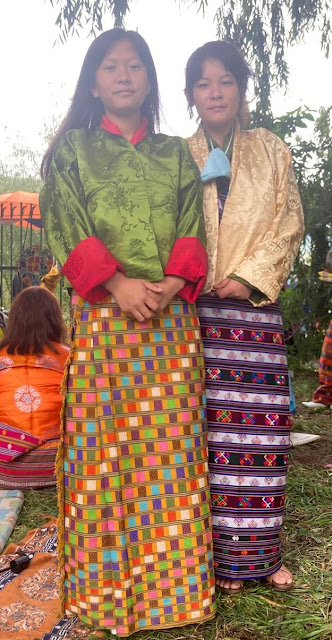This is Bhutan
I moved to Adelaide, South Australia 10 months ago. This decision was driven by my belief that family has to be together and pursuing your career or following an ambition should not come at the cost of it. I made this decision knowing that it wouldn’t be easy – that, I may not have a regular office job that I am used to. Yet, as I do the manual shift jobs that I have taken, I find myself talking to myself that I would be contributing better by doing what I am good at; what I have so many years of experience in. But this is not what I was meaning to write about.
Most of the people I met do not know about Bhutan. They haven’t heard about it. They ask in uncertain voice, ‘Bhutan…?’ On top of that, saying my name is very difficult. They even ask me if I have an easier name that they can call me by. So, the other day, I told my four-year-old son that maybe I should call myself Kel from my initial K.L. and he was like, no mummy, your name is Kuenzang. And I agree. This is the reason that I want to write about Bhutan, my beautiful country.
Paro Taktshang -- a monastery popularly known as the Tiger's Nest
It is a small country, a Buddhist Kingdom, nestled in the Himalayas. More to make it easier for people to imagine where it is, we say, it is located between India and China. What is so different about this country is that, we are a population of roughly 700,000 people and we lead our daily lives driven by universal values like compassion, kindness and generosity – which results from our belief in Karma. We have as many monasteries, stupas, and prayer flags as houses. We have high snowcapped mountains and pristine gushing rivers. We wear national dress called Gho (for men) and Kira (for women) for all official settings. How we live in relation to others is also driven by what we call Drig Lam Nam Zha, the social etiquette that we are taught formally in schools and informally over the generations by elders in the family. It is a country where tradition and culture are intact, people are more generally equal, education and healthcare are free, and emerging socio-cultural norms are not met with mainstream resistance.
Thimphu Memorial Chorten -- A Stupa in the heart of Thimphu, Capital City (Built in memory of the Third King of Bhutan)

Kira - national dress worn by women Gho - national dress for men
We sing praises of our country. We call it a heaven on earth. This we know is because of the generations of benevolent kings, and we pray that their reign will continue. If I thought about this lightly before, I know it for sure now. The vivid feeling of gentle clean breeze, the calm calling of the prayer flags fluttering in the wind, the gentle nudge from the sounds of prayer wheels turning, the sounds of laughter and chatter from the kids in the neighbourhood. This is what makes Bhutan a heaven on earth. And yet, we have embraced development like any other nation. We deliver all our services online and we are driven by the same technological advancement. We have succeeded to bring in development without losing what truly makes us Bhutanese.



Comments
I did not know that you moved to OZ - the most unlikely person I would have thought would do so. But that is how the cookies crumble.
Here is hoping that you will realize whatever you are in pursuit of .... Wishing you Best of Luck.
I wonder if Luzee also moved?
My kids’ sense of belonging to Bhutan hasn’t worn off, and I think we will be back before it does. Luzee is still in Bhutan but not in civil service anymore.
Take care.